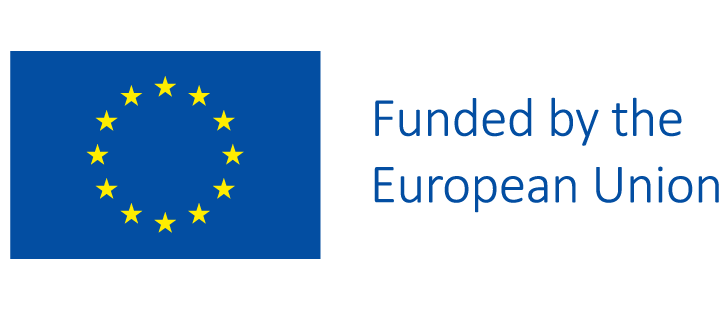Wp4 research preliminary findings
The ARENAS Project conducted a comprehensive series of surveys across several European countries, including Latvia, France, Cyprus, and Spain, to analyse political beliefs, societal concerns, and the penetration of extremist narratives. This study is particularly important as it was conducted before the 2024 European Union parliamentary elections, providing a snapshot of the Europeans’ public sentiment, especially regarding key socio-political issues. The preliminary results offer valuable insights into each country’s unique political landscape and the role of gender dynamics, science and education in shaping these attitudes. Notably, the study was deliberately scheduled before the EU elections to take the political pulse of European citizens. The potential of the EU election campaigns to influence the narratives surrounding critical issues like immigration, economic inequality, and national identity, thereby shaping public discourse, cannot be overstated. This study holds significant importance as it sheds light on the concerns and political orientations of different demographics within the EU. Understanding these nuances is critical in a time of increasing political polarisation, rising populism, and widespread discontent over issues such as immigration, rising costs, and inequality. The study also provides a unique opportunity to compare the political climates of different countries, assessing how local problems influence broader European integration and unity. The meticulous preparation by the research teams from France, Spain, Latvia, and Cyprus, ensuring the reliability of the findings, has made this study a reliable guide for both policymakers and academics to address the most pressing concerns of the EU population in an informed and effective manner. This research aims to assess the extent to which extremist narratives have penetrated European society, focusing on the electorates of Latvia, Cyprus, France, and Spain. As part of Task 4.2, a survey was conducted in these countries to explore extremist attitudes and narratives. The sample is 2000 thousand people each for France and Spain, and 800 in the Cyprus and Latvian cases. The sample sizes were adjusted to reflect the population sizes of the various countries. The sample is segmented by gender, age, and population centres. A standard questionnaire was used across all countries to enable comparison, targeting populations aged 18 and over with the right to vote. Each country included specific locally related questions to be analysed. Finally, the survey was conducted online.
Latvia
In Latvia, economic concerns dominated the survey results, with inflation, rising prices, and healthcare identified as the primary issues. 51% of respondents refused to declare their political stance, signalling political disengagement or reluctance to participate in divisive debates. However, of those who responded, 49% represented a spread across the political spectrum, with the centre, centre-left, and right being the most significant blocs. The self-declared far-left respondents emphasised social inequalities and education as their primary concerns while positioning themselves on the far right and pointing to external threats, immigration, and corruption. Interestingly, men were likelier to highlight corruption, whereas women were more concerned about healthcare and rising prices. Age also played a role, with younger respondents generally leaning toward more left-wing views while older ones gravitate more toward centre-right positions.
France
In France, the survey results reflected a society deeply concerned with rising prices and immigration, aligning with the broader political discourse. Respondents identifying as far-right overwhelmingly viewed immigration as their top issue (46.1%), while far-left respondents prioritised climate change and social inequalities. Gender differences were notable as well, with men showing a more substantial concern about immigration and national debt, while women leaned toward fears of healthcare services and economic inequalities. Interestingly, a significant majority (70 %) considered’ national unity’ essential, though there were divergences based on political orientation. Far-left respondents were more likely to downplay the importance of this unity, whereas far-right and centre-right respondents emphasised it as an essential component of French society.
Cyprus
The Cyprus survey revealed a population primarily concerned with migration, followed by regional conflicts and economic inequality. These issues are particularly relevant given the very high number of asylum seekers on the island, whether from African countries or Syria. These continuous arrivals worsen the ongoing territorial tensions with Turkey since the asylum seekers transit through the northern region, the occupied territory. Given the broader geopolitical instability in the Middle Eastern region, the migration issues will only worsen shortly. Younger respondents (18-29 years) displayed a higher support rate for extreme-right parties. This trend contrasts with the traditionally more centrist or left-leaning older population, which may indicate a future win of the extremist parties on the island. These parties have multiplied their followers five-fold in the last ten years. However, the younger generation’s rejection of and disillusionment with the political establishment is illustrated by the election of Fidias Panayiotou, a 24-year-old who does not officially align with any party, does not care about politics, and is known as a ‘trickster.’ The prominent left-wing parties lost two seats. Gender dynamics showed that while men and women viewed migration as the most significant issue, women expressed more concern about price increases, while men were more worried about corruption.
Spain
In Spain, if we take a general picture, we observe that economic issues are considered not only as a problem for the country but also as a threat to it. On the other hand, immigration and the lack of agreements in the government are also perceived not only as a problem but also as a threat to the country. The survey’s preliminary results also show the division between political beliefs, with far-left respondents focusing on housing and economic inequality, while the far-right viewed immigration and regional independence as the most pressing issues. There were gender-based distinctions, with far-right women giving equal importance to immigration and regional conflicts, whereas men in this group prioritised immigration.
In addition, age and political orientation revealed that younger groups tended to lean left, while middle-aged respondents were more evenly split across the political spectrum. Right and far-right positions were more prevalent among men’s group between 25 and 35 years old. The role of corruption was also highlighted, as it is a significant concern for right-leaning individuals across both genders.
Conclusion
These preliminary results offer a snapshot of the political and social concerns across four EU member states ahead of the 2024 EU parliamentary elections. Common issues such as immigration and rising costs were shared across the countries, though each nation had unique priorities based on local political and historical contexts.
From a gender perspective, women tended to focus more on economic inequalities and social services, while men placed greater emphasis on issues such as immigration, economy, and national security. National identity was another recurring theme, particularly in France and Cyprus, where unity and regional conflicts significantly shaped political positionings. The role of science and education was less directly addressed, though education featured prominently in the political beliefs of far-left respondents, especially in Latvia, to address social inequalities. The research team is committed to continuing to analyse this cross-European survey data and will prepare a comprehensive report. This forthcoming report will offer deeper insights into these initial findings, allowing for more detailed policy recommendations and further exploration of critical issues, especially concerning gender dynamics, national identity, and the role of science in addressing societal challenges. Furthermore, the research teams will continue to analyse this data, and a comprehensive report will be prepared shortly, providing deeper insights into the underlying trends. This ongoing analysis will allow the team to explore additional variables and cross-examine the data to ensure robust conclusions and recommendations.
Research teams:
LATVIA Rasma Pīpiķe and Alise Vītola (Creative Ideas – Latvia)
FRANCE Gwenaëlle Bauvois (Cergy University)
FRANCE Julien Longhi (Cergy University)

